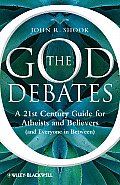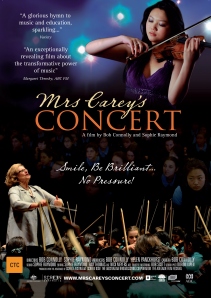I've read a few books written by atheists in the last few years and have been mostly unimpressed with them. Some have been so dismissive of theism, often with unnecessary and disrespectful amounts of cheap sarcasm and insults, that they have lost my respect for them. Some have not demonstrated any accurate understanding of theism and others have made poor use of theistic sources in their critiques. But The Australian Book of Atheism is a whole different matter. It is respectful, intelligent, scholarly, and (mostly) objective.
Edited by Warren Bonnett, The Australian Book of Atheism is a collection of papers roughly categorized into themes and written by prominent Australians who are all atheists. The first section presents an overview of atheism in Australia. This section consists of three chapters covering a brief history of atheism/atheists in Australia and discussions of the relationship of atheism to the Australian Constitution and the law.
Part 2 offers the reader six personal perspectives on atheism which make excellent reading for anyone who genuinely wants to understand why many people see theism as impoverished and have chosen to reject claims in god, gods, God, or the supernatural.
Part 3 focuses on education and discusses the role and relationship of religion in education, up to date exploration of the controversial presence of chaplains in public schools, issues around evolution and creationism, whether intelligent design "theory" can be considered science, and a comparison between philosophy and theology.
The next section turns its attention to social and cultural issues such as the challenge of fundamentalism, debates on euthanasia and abortion, an argument for gods being human invention, the rise of "spiritualism" in modern culture, and social attitudes to death and dying. There's a particularly interesting chapter on the so-called Progressive Christianity movement.
Section 5 focuses on the political with an outstanding, wickedly funny, but profoundly serious argument as to why "God is a bloke". There is a highly informative chapter on the role of the Exclusive Brethren sect in Australian politics - something that many readers may know little, if anything, about. There is also some important material on why a secular society would ensure religious (and other) freedom rather than one based on religious grounds.
In Section 6 a number of writers explore philosophical issues including whether there is a basis for morality without God, atheism as a spiritual path, the creation of meaning in the absence of a belief in God, and the relationship between religion and violence.
The final section explores the biological basis of religious experience in a careful and scholarly manner. Finally, there is a brief appendix that outlines the financial cost of promoting religion in Australia through taxes and other government allocations of money.
I've outlined the contents of The Australian Book of Atheism to give an idea of now wide-ranging this collection is. And even then it only scratches the surface of possible topics! In my view, this book is essential reading for theists and atheists alike for a number of reasons. Firstly, it is an excellent example of good quality writing on a highly contentious topic. It is engaging, scholarly, respectful, honest, and stimulatingly provocative.
Secondly, Christians would benefit from hearing atheists speak for themselves rather than, as so many do, consume apologetic material against atheism which frequently casts atheists as evil, "of the Devil", or, at best, completely ignorant. The contributors include those who have always seen themselves as atheist, some who have converted from some form of Christianity, and some who have never been faced with a moment of choice because of their upbringing. A Christian reading this book would be hard pressed to construe atheists negatively. They might even realize that atheists can have a strong sense of moral obligation, and live happy and meaningful lives. So, if nothing else, a Christian who courageously decides to read it despite possible warnings from their spiritual leaders will gain a more accurate picture of what many atheists really think and believe.
Thirdly, I'm sure that many atheists will find much of benefit in reading this volume. For some it will provide reasons for strengthening a commitment to atheism and a framework for developing a moral framework based on rationalist/humanist grounds. It will also provide insights into the status of religion in Australian life and culture. And, perhaps more importantly, it provides a wonderful example of good conversation with others about beliefs.
Christians reading this review will undoubtedly wonder why I haven't criticized the book for its rejection of God as a real being. How can I be so positive about a book that strikes so deeply at the heart of a Christian world view? There are a number reasons in addition to the above:
- It's a very good read! While some may fond patches of dryness, there's enough variety of writers and writing that everyone will find something of interest. And the writing is good writing.
- Other (Christian) writers have written tomes of material arguing against atheism and for theism. I direct the reader to those if they wish to read arguments against the ideas in this book. But be careful - apologetic material varies hugely in it's quality and rigor.
- One of the things I find most offensive is Christians arguing against positions they are ignorant about. In my opinion, a person who wishes to criticize another position should earn that right by demonstrating they fully understand that position. From my perspective, reading The Australian Book of Atheism would be a good start if a Christian wants a good, reliable introduction to atheist thinking.
Do I have any criticisms of the book? Not really. I'm a bit uncomfortable with the contribution by Tanya Levin, the author of People in Glass Houses, who seems to have a chip on her shoulder (judging by her own book and interviews I have seen of her). Sometimes emotion seems to overshadow objectivity. But this is a very minor criticism. And for some readers outside of Australia, there may be some irrelevancy given that much of it addresses the Australian context. Overall, The Australian Book of Atheism is an excellent addition to the dialogue on religion and atheism.
 Godless: How an Evangelical Preacher Became One of America's Leading Atheists by Dan Barker
Godless: How an Evangelical Preacher Became One of America's Leading Atheists by Dan Barker














